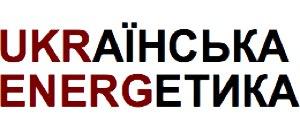Would the parliament block reform of industrial pollution control?
The draft law on preventing, reducing and controlling industrial pollution (registration No 4167), developed by the Ministry for Environmental Protection (hereinafter referred to as the government draft law), was registered in the Verkhovna Rada of Ukraine in late September. Its purpose is to facilitate implementation of Directive 2010/75/EU on industrial emissions, which is included to Annex XXX to the Ukraine-EU Association Agreement. This draft law introduces an integrated permit for large polluter enterprises, setting forth requirements to the volume of pollution and defining actions which these enterprises must take to reduce emissions.
In October, a group of MPs submitted to the parliament an alternative draft law No 4167-1. According to its authors, this document is also aimed to harmonize Ukrainian legislation with that of the EU.
At the first glance, both initiatives are very much alike: they have the same structure and the wording of most provisions is also similar, but at the same time, there is a number of differences:
Both draft laws contain provisions concerning implementation of the conclusions of the best available techniques and management methods (BATM), which explicitly envisage actions that enterprises of a particular sector are required to take in order to reduce environmental pollution. The government draft law states that the BATM conclusions approval procedure is set by the Cabinet of Ministers. The alternative draft law proposes to define the BATM conclusions approval procedure in a separate law of Ukraine, and until the said law is passed the enactment of the law on preventing, reducing and controlling industrial pollution shall be postponed.
This provision seems to be unfounded for several reasons. Firstly, the BATM conclusions approval procedure is not a matter regulated by laws only. On the contrary, development of two legislative acts instead of one would only complicate the implementation of reform. Secondly, such a wording of the alternative draft law means that reform won’t be implemented until MPs agree upon the BATM conclusions approval procedure, which actually means postponement of the reform itself.
Moreover, the alternative draft law does not contain provisions regulating control over the companies’ compliance with the terms of the integrated permit, even though considering its title, the existence of these provisions should have been envisaged. On the other hand, the government draft law does contain provisions concerning control over compliance with the terms of the integrated permit: information that must be included to the inspection plan, major criteria for the assessment of the environmental risk from economic activity, grounds for unscheduled inspections, as required by Directive 2010/75/EU.
In addition, the alternative draft law contains flawed rules that regulate large polluter enterprises. According to the preamble of Directive 2010/75/EU, it is appropriate to revise the legislation relating to industrial installations in order to simplify and clarify the existing provisions and reduce unnecessary administrative burden. For that purpose, the government draft law proposes changes to the Water Code of Ukraine and the Ambient Air Protection Law, which abolish the requirement to apply for permits under the aforementioned laws if an integrated permit is available. The alternative draft law proposes similar amendments only to the Water Code. For companies, it would mean the existence of parallel authorization systems, and therefore, of additional administrative burden.
Presently, the fate of reform is in the hands of MPs. We can only hope that the Verkhovna Rada’s specialized committee working on these draft laws will use the EU legislation and the best practices of EU states as the basis and, in the end, will support the implementation of an industrial pollution control system which Ukraine needs.







